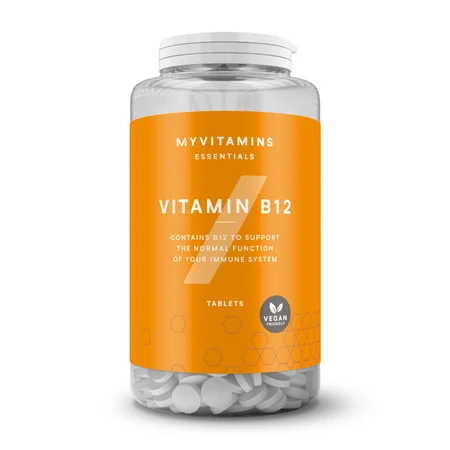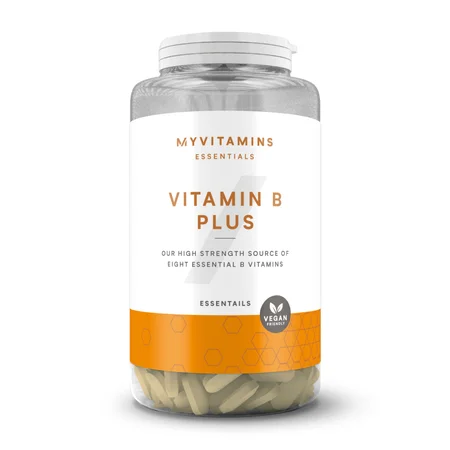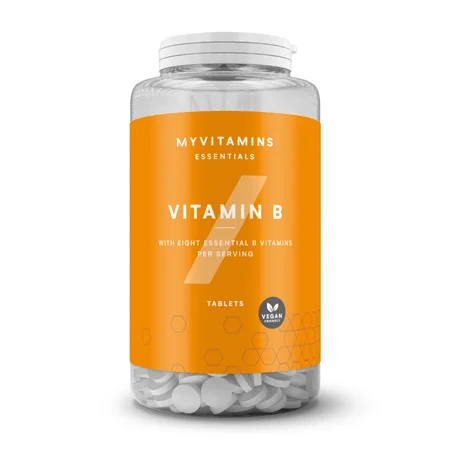8 Health Benefits Of B Vitamins

While we often focus on our macros to meet our goals in the gym, micronutrients like vitamins cannot be ignored. Vitamins are crucial for our overall health and performance, and an important part of prevention of health issues. B Vitamins are a group of water-soluble vitamins that are present in many plant-based foods like whole grains, fruits, and vegetables, as well as animal-based foods like meat and dairy products.
B Vitamin deficiencies can lead to a wide range of health issues from skin conditions to fatigue and memory difficulties.

Health benefits of B vitamins
Each B vitamin has a different benefit for the body...
1. B1 (Thiamin)
2. B2 (Riboflavin)
3. B3 (Niacin)
4. B5 (Pantothenic Acid)
5. B6 (Pyridoxine)
6. B7 (Biotin)
7. B9 (Folate)
8. B12 (Cobalamin)
B vitamins dosage
The following recommended dosages are from the Office of Dietary Supplements.
B1 – Thiamin: 1.1-1.2 mg per day 2 B2 – Riboflavin: 1.1-1.3mg per day (those who avoid dairy products or are vegan or vegetarian may need more) 3 B3 – Niacin: 14-16mg per day 14 B5 – Pantothenic acid: 5mg per day 5B6 – Pyridoxine: 1.2 – 1.3 mg per day (if over 50 increases to 1.5-1.7mg) 6 B7 – Biotin: 30 mcg per day of biotin 7 B9 – Folate: adults 400mg daily and pregnant women 600mg, but not more than 1000mg 8 B12 – Cobalamin: 2.4mg per day9
Signs of vitamin B deficiency
Skin rashes or discoloration 1 Lip and mouth tissue dryness, cracking, sores, swelling 1 Weakness, dizziness, confusion, lack of energy 11 Irritability, lack of concentration 6,11 Nausea, cramping, diarrhea, constipation 1 Loss of feeling in hands or feet, loss of muscle 2
*If you experience any of these you should always contact a doctor.*
Foods with B vitamins
Meat Fish Poultry Dairy products Leafy greens Whole grains Eggs Legumes Seeds Berries
Take home message
READ THESE NEXT:

Claire is a Registered Dietitian through the Academy of Nutrition and Dietetics and a board-certified Health and Wellness Coach through the International Consortium for Health and Wellness Coaching. She has a Bachelor of Science in Biology and a Master’s degree in Clinical Dietetics and Nutrition from the University of Pittsburgh.
Talking and writing about food and fitness is at the heart of Claire’s ethos as she loves to use her experience to help others meet their health and wellness goals.
Claire is also a certified indoor cycling instructor and loves the mental and physical boost she gets from regular runs and yoga classes. When she’s not keeping fit herself, she’s cheering on her hometown’s sports teams in Pittsburgh, or cooking for her family in the kitchen.
Find out more about Claire’s experience here.






